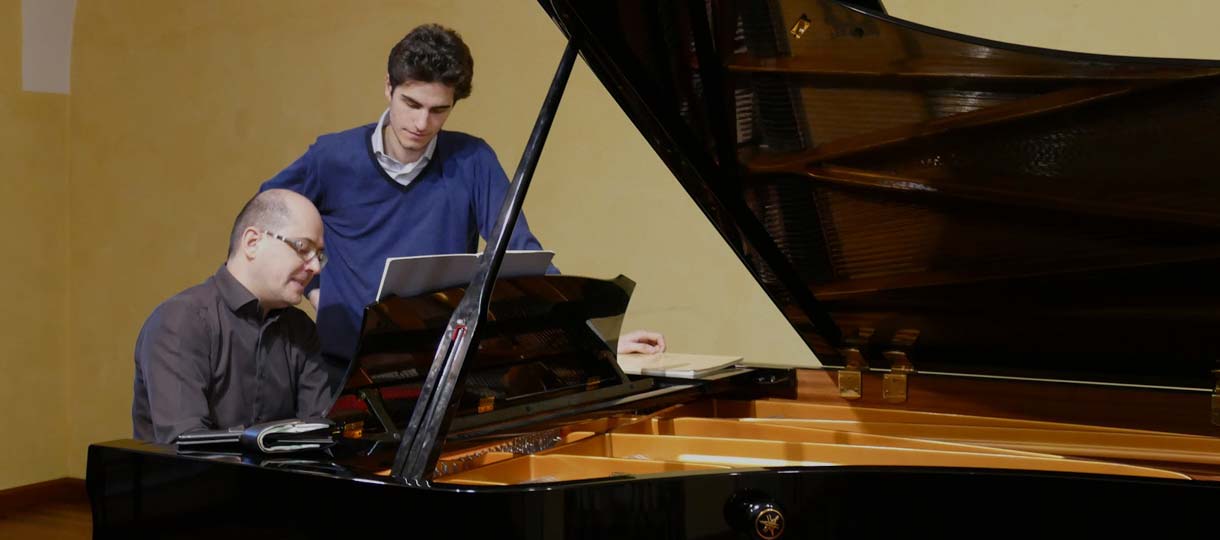Roberto Plano has been described by The Chronicle in Glens Falls, NY, as the “Pavarotti of the Piano”, due to his lyricism, has been defined by Chicago radio commentator Paul Harvey, Jr. as the heir to Rubinstein and Horowitz, and by US critic John Bell Young as one of the greatest interpreters of Scriabin. His international concert career has seen him perform in the most important halls in Italy, Europe and America, appearing as a soloist with prestigious orchestras in Italy and abroad, under the direction of eminent conductors, or playing together with famous string quartets and renowned soloists. Acclaimed by international critics, he has always been a dedicated and passionate teacher. Quickly becoming one of the most sought-after teachers in the USA, he is teaching at Indiana University Jacobs School of Music in Bloomington, USA from 2018 to 2023. Since September 2023, he has been teaching piano at the Conservatorio della Svizzera Italiana in Lugano, the Royal Northern College of Music in Manchester, UK, and the Accademia di Musica.
Roberto Plano has been teaching an advanced piano course (3 years), a Light Course at the Accademia di Musica in Pinerolo and held masterclasses at our Musica d’Estate summer campus in Bardonecchia. He is one of teachers of piano in the new Post-graduate specialist courses in music performance. As part of our section A Career in Music, we interviewed him to ask what advice he would give to our students, who are set to become the future generation of music professionals.
What were the key experiences that marked your development and training as a musician? At what time of your life did they take place? Why were they significant?
I have many, many memories connected to the key experiences in my career as a student, from when I was a small child. I remember my first teacher, who told my parents to buy a real piano to replace the keyboard I had begun playing on. She had probably realized that studying piano could be central to my life and I thank her for that. I remember the teacher I had when I was a teenager, Maestro Mezzalira in Varese, who very clearly told me: “Now you have realized that you really do have talent and you haven’t yet developed it. When you do, music will become important for you and it will be a focal point for your life and career.” Thank God that is what eventually happened, and I really understood what he meant. These are moments that I will never forget. Later I was incredibly lucky to have wonderful teachers who came from great and different schools of piano playing, who were actually connected in a direct line, teacher to student, to Arrau, Krause, right back to Liszt, and then through Liszt to Czerny and Beethoven. As well as teachers who were connected back to Michelangeli, to Cortot and Lipatti. I was lucky to have many teachers, from so many great and different schools of piano playing, who advised me on how to set out on my career, how to find my own path, a path that was right for me personally. And this is what I try to do as a teacher: I try to point out a possible direction, but it is the student who then must find their own path independently. I will always be grateful to my incredible teachers for their advice.
Can you describe one or two turning points in your career? What impact did they have on your career? Why were they important?
There were some key moments that helped me move forward on this long, difficult journey. Certainly, I have to say that competitions were fundamentally important: I wouldn’t be where I am now without competitions. Especially without the Cleveland International Piano Competition, which was followed by a series of important opportunities, each resulting from the one before. Before that I hadn’t succeeded in becoming known outside Italy, as I would have liked to be. After winning at Cleveland, in just a few weeks, I found myself catapulted into a world that was completely unfamiliar. I was very frightened, so much so that for a moment I hoped I would come second, not first. When they called my name, I felt the full weight of the responsibility of winning. From then on my career took off. I had about fifty concerts to perform over 16 months, my debut in New York at the Lincoln Center, a number of recording sessions: all things I was afraid I would not succeed in doing well, but which all worked out perfectly. So, yes, among the key moments of my career I certainly must include competitions, especially Cleveland. If I have to think of more recent events, what comes to mind is becoming Associate Professor of Piano at one of the most prestigious music schools in the world, the Indiana University Jacobs School of Music, and earlier, becoming the first Italian pianist to hold a professorship in piano at Boston University. For me these achievements are like winning competitions. They are important milestones in my teaching career, which at this time I never see as disconnected from my career as a concert performer. So I would say that, as key moments in my career, I would place obtaining my positions as university professor right beside winning competitions.

Often our mistakes teach us important lessons. If you could go back in time in your career what would you do differently?
As you say, mistakes are the greatest teachers. Without them I wouldn’t have got to where I am today. Looking back on my career, I would say that I wouldn’t do anything differently, even the things I got wrong, that turned out badly, when I was hoping for a different result. I believe that that’s the way things had to go, that out of those mistakes came something new, something positive. My errors were essential in sending me in another direction and bringing me to where I am now.
Along a musician’s career path there are always many important decisions to be made and these often depend on and result from the opportunities that are offered to them. What helped you to stay focused and not to lose sight of your goals?
This is a fantastic question and the answer that springs to mind immediately is: “Don’t be afraid. Make your decision and commit to it completely.” You can lose your sense of direction if you start thinking that the decision you have taken was wrong and if you don’t have the courage to follow through on your decisions to the end. In my case, I could have just contented myself with my success in Italy. I had sacrificed a lot to achieve it, through hard work and dedication. But when I got a call to try my luck in America, I couldn’t say no. I believe that was the correct decision and direction and I hope not to have regrets in the future. I think it’s important to be courageous, especially in a profession like ours. Without courage you can’t set out on the paths that will probably lead you to realise what you have been dreaming of all your life. I decided to go to America when I was nearly forty, when I already had a family, but I had their full support, thank God. We decided to embark on this great adventure and we could have stayed in Boston. Boston University is an important school, the city is fantastic, we had only just settled in after moving continents: we could easily have decided to stay and put down roots there. But that’s not what we did, because we had the courage to take another path that led us to one of the prestigious music schools in the world, the Indiana University Jacobs School of Music. I knew it very well because I had played concerts and held masterclasses there; so I already knew all the teachers and the great maestros who had taught there before me, such as Jorge Bolet, and Franco Gulli and Enrica Cavallo (I’m thinking of the Italians). So we decided that the right thing to do was to pack our bags and set off on this new adventure. I believe that living your life like this cannot lead you to have regrets later; rather you can only feel proud of what you strived to do. So my advice to young musicians is this: don’t be afraid of anything and never stop moving forward.
Apart from studying with great passion and dedication, what advice would you give to young musicians who are starting out on a career in music?
I would like to give young musicians a lot of advice, starting with what I said before: be courageous. Don’t be afraid to put your hopes in something that seems beyond your limits. Positive results will come from your courage and your determination to act. Linking these thoughts to what’s happening in the world right now, I would say: “Don’t wait!”. We are wondering how we will get out of this pandemic, but we are certainly not free of it yet. But we mustn’t wait till the pandemic is over before we start working on our music again. Try to plan your work as precisely as possible. Try to get some ideas going that you can put into action as soon as this very difficult time comes to an end. Have faith that we will see the return of everything we believe in: the power of music, the joy of having lessons face-to-face with your teacher, which is such a great form of human contact, a wonderful sharing of ideas. In the meantime, you must try to utilize all the means of communication offered by modern technology through online channels, so you can keep trying to progress along your chosen path, and not waste a single minute. Because every second is precious, both for our lives and for our careers in music, which are so challenging. I send my best wishes to all of you in the hope that we will be meeting again in person very, very soon.
__________________
